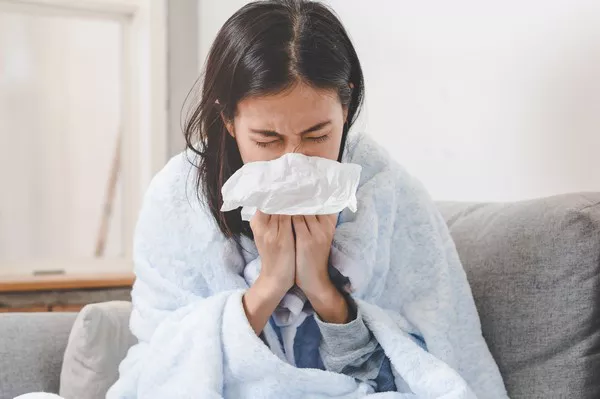Hay fever, also known as allergic rhinitis, affects millions of people worldwide, causing bothersome symptoms such as sneezing, runny nose, nasal congestion, and itchy eyes. While hay fever symptoms are typically associated with exposure to pollen during spring and summer, many individuals notice that their symptoms worsen when it rains. In this comprehensive article, we explore the reasons behind the exacerbation of hay fever symptoms during rainy weather, the impact of rain on airborne allergens, and strategies for managing symptoms effectively.
Rain and Pollen Dispersal
During dry and windy conditions, pollen is readily dispersed into the air, increasing the likelihood of exposure for individuals with hay fever. However, when it rains, the moisture in the air weighs down pollen particles, reducing their airborne dispersal. This decrease in airborne pollen levels may lead to temporary relief for some hay fever sufferers.
On the other hand, rain can also cause the release of allergenic particles into the air. Some plants release their pollen during or immediately after rainfall, which can lead to a surge in airborne allergens once the rain stops. This sudden increase in pollen levels can trigger a more intense allergic response in individuals with hay fever.
Mold Spores and Humidity
Apart from pollen, mold spores are another common allergen that can exacerbate hay fever symptoms. Mold spores thrive in damp and humid environments, making rainy weather an ideal breeding ground for molds.
During rain, the moisture in the air promotes mold growth on various surfaces, including damp leaves, soil, and decaying vegetation. As the raindrops hit the ground, mold spores can be released into the air, leading to an increase in exposure for hay fever sufferers. Inhaling these mold spores can trigger allergic reactions and worsen hay fever symptoms.
Thunderstorm Asthma
In rare cases, rainy weather, particularly during thunderstorms, can trigger a phenomenon known as “thunderstorm asthma.” This occurs when strong winds and heavy rain cause pollen grains to rupture, releasing smaller particles known as “respiratory allergenic fragments.” These fragments are more easily inhaled into the lower airways, triggering severe asthma-like symptoms in individuals with hay fever or asthma.
Thunderstorm asthma events are more likely to affect individuals with a history of hay fever, asthma, or other respiratory conditions. During such events, there may be a sharp increase in emergency department visits and hospitalizations for asthma-related symptoms.
Changes in Air Quality
Rain can have a cleansing effect on the atmosphere by washing away airborne allergens, pollutants, and particles. However, this cleaning process can also stir up allergenic particles, leading to temporary spikes in allergen levels after rain.
Additionally, rain can temporarily reduce the amount of airborne irritants, such as dust and pollution, which may have been providing relief to hay fever sufferers. As the air clears, the sudden exposure to previously masked allergens can trigger a more pronounced allergic response.
Strategies for Managing Rain-Induced Hay Fever
While it may be challenging to completely avoid rain-induced hay fever triggers, there are several strategies that can help manage symptoms effectively:
1. Stay Indoors: On rainy days, staying indoors can reduce exposure to rain-induced allergens. Keep windows closed to prevent allergens from entering your living space.
2. Monitor Pollen Forecasts: Check local pollen forecasts to identify days when pollen levels are expected to be high, even after rain.
3. Use Air Purifiers: Air purifiers with HEPA filters can help reduce airborne allergens, including pollen and mold spores.
4. Nasal Irrigation: Regularly rinsing the nasal passages with a saline solution can help remove allergens and reduce congestion.
5. Allergy Medications: Over-the-counter or prescription antihistamines and nasal corticosteroids can provide relief from hay fever symptoms. Consult with a healthcare professional for personalized treatment recommendations.
6. Allergy Shots: Immunotherapy, or allergy shots, can help desensitize the immune system to allergens, reducing the severity of hay fever symptoms over time.
Conclusion
Rain can have both positive and negative effects on hay fever symptoms. While it may temporarily reduce airborne pollen levels, rain can also trigger the release of mold spores and other allergenic particles, exacerbating hay fever symptoms. Thunderstorm asthma is a rare but serious phenomenon that may occur during rainy weather. Understanding the impact of rain on airborne allergens and taking proactive steps to manage hay fever symptoms can help individuals find relief and improve their quality of life. Consulting with a healthcare professional can provide personalized guidance on managing hay fever and other allergies effectively.


